Sentient Beings 🐾
Like us, animals can suffer and feel joy, and they should be able to live their lives however they wish. Animals are sentient, that is, they are conscious and they can feel emotions and a broad range of sensations. By eating animals, we're condemning them to a miserable life and a terrible death. Just in the UK, 4 million animals are killed in slaughterhouses and tens of millions of aquatic animals are slaughtered every day. By what right do we take their lives?
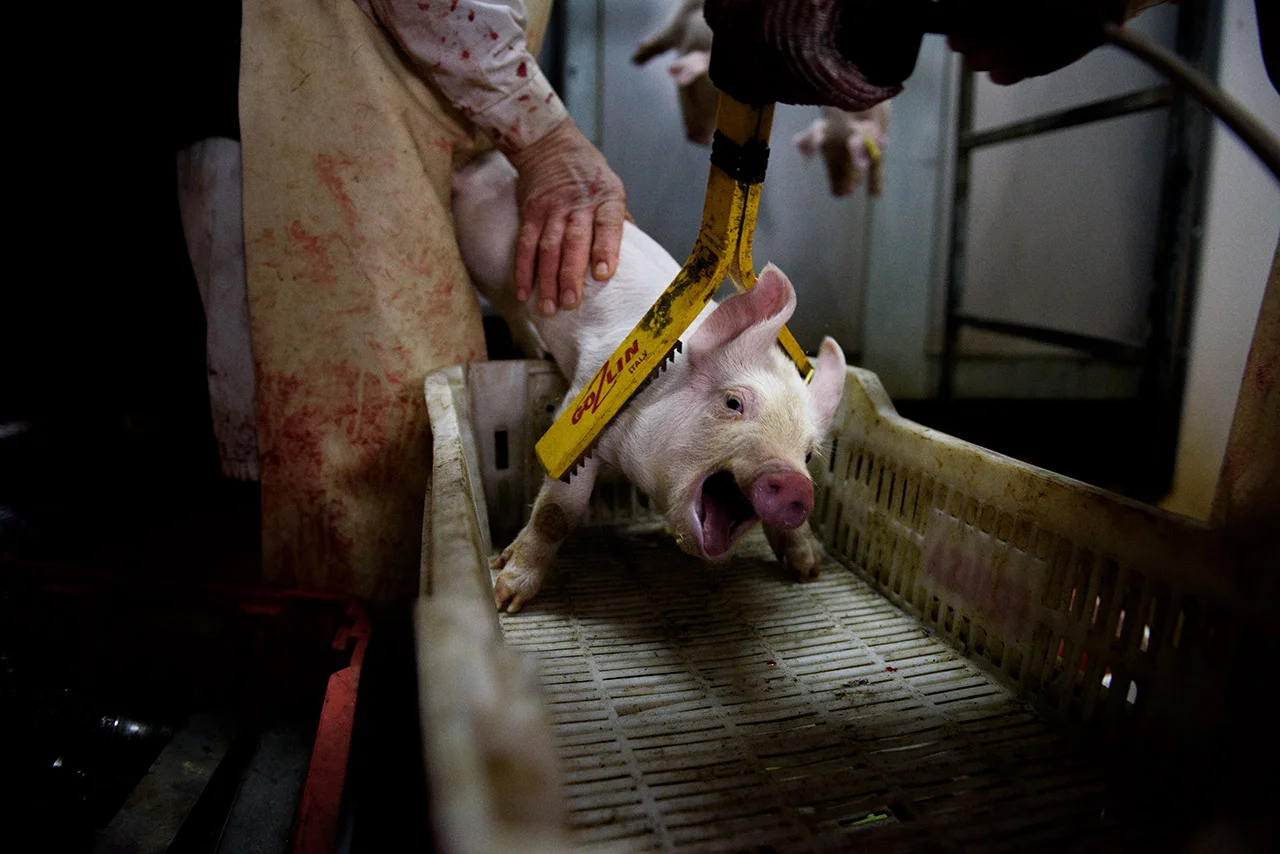
Genetic selection 🧬
Genetic selection transforms animal bodies to make them as profitable as possible, to the detriment of their health. Pigs, chicken and cows have been selected to produce the highest possible amount of meat. Hundreds of thousands of chicken die in farms even before getting to the slaughterhouse: their heart, skeleton and lungs cannot resist this accelerated muscle growth.
Laying hens have been genetically selected to lay as many eggs as possibe, to the detriment of their health. While a wild hen lays around 20 eggs per year, currently-farmed laying hens lay more than 300. This high productivity requires enormous amounts of calcium to produce the eggshells and is a common cause of bone decalcification, leading to frequent bone fractures in hens.
Animal agriculture 🚜
From the moment they're born, most animals are mistreated. Piglets are castrated with a scalpel and their tail and teeth are cut, all without anesthesia. Cow calves have their homs burnt with fire, chicken and duck chicks have their beak tip bumt and the latter have their claws cut as well, etc. These painful mutilations are the standard practices in conventional farming, and very frequent in organic farming
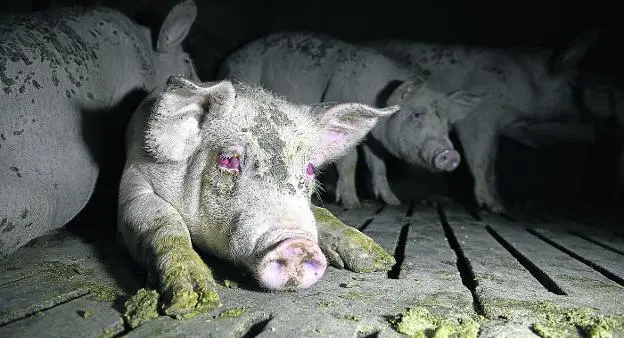
Most farm animals find themselves crammed in the thousands in huge sheds. By separating animals by force, cramming them together or isolating them in cages, these farms prevent animals from having affective relationships and expose them to physical and psychological suffering. Essential activities such as running, playing, jumping or exploring are simply impossible in the vast majority of farms.
In dairy farms, calves are separated from their mothers right after birth or during the next 24 hours: they'll never see each other again. This is a truly traumatic experience and, after the separation, they usually try to find each other by holling for days. Cow calves spend their first 8 weeks of life all alone in individual cells often barely bigger than them: if they were to stay with their mother they would drink the milk that's supposed to be sold to us.
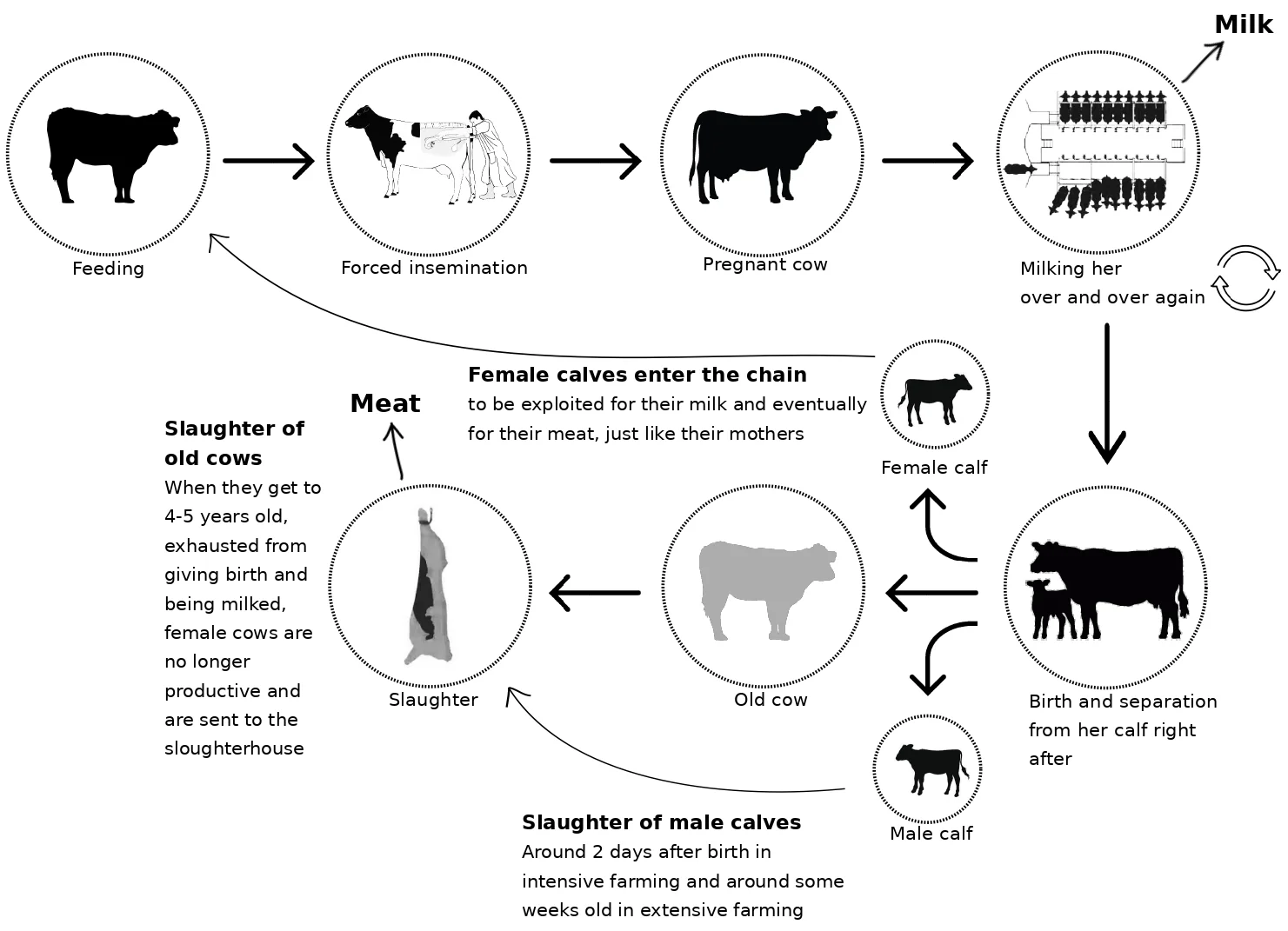
Slaugher ☠️
Animals suffer when being transported as well, sometimes for tens of hours in such stressful conditions that some can't resist it. Terrified and exhausted, they're brutally forced to get off the truck to enter into the noisy and unknown environment that's a slaughterhouse.
At the moment we kill them, most animals are only a few weeks or months old. We kill broiler chickens at 40-45 days old when they have a life expectancy of 8 years, we kill pigs after 6 months when they can live up to 15 years, we kill cow calfs after 3-8 months when they can live up to 20 years...
Animals are either electrocuted, gassed, or their skull is broken with a captive bolt pistol and they are subsequently bled or directly have their throat slit. Some are not properly “stunned” and they regain consciousness while bleeding.
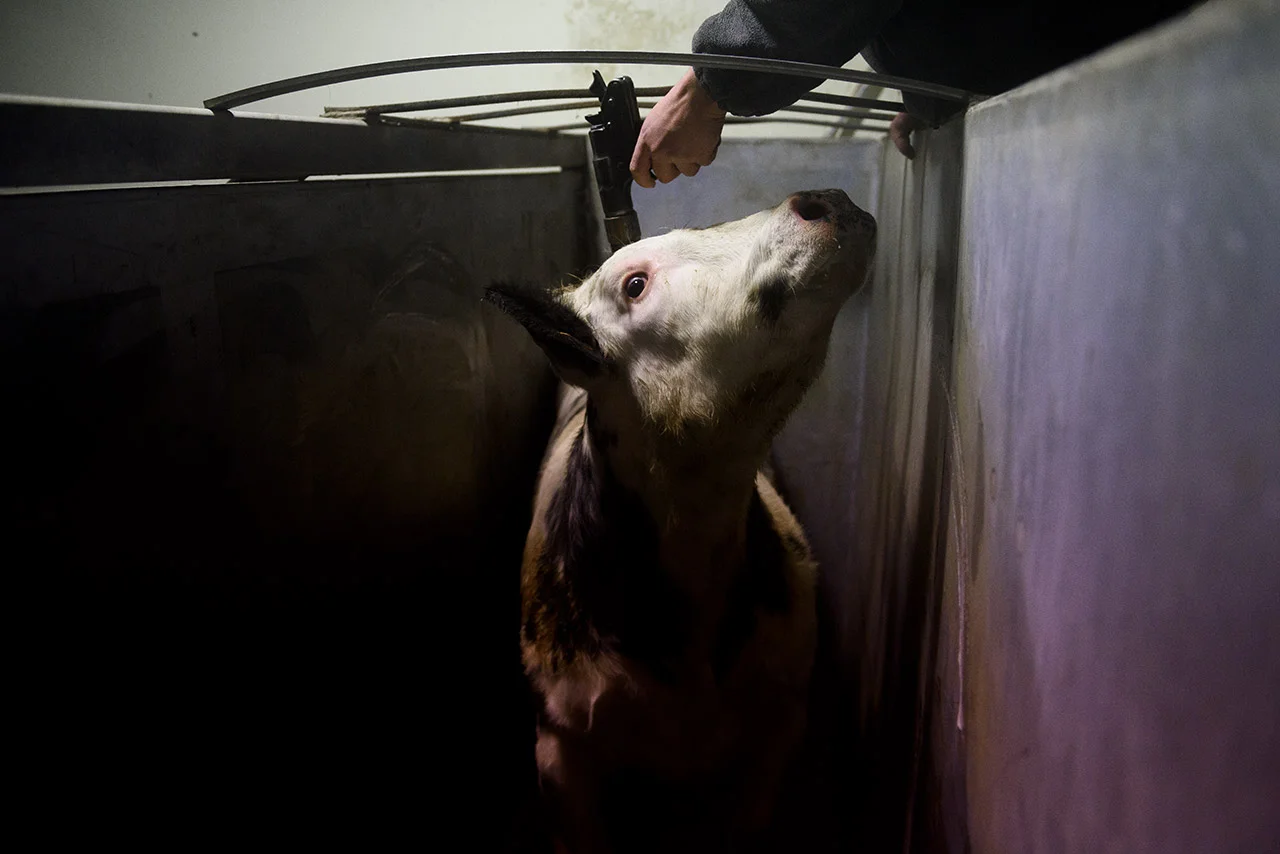
Male chicks from the egg industry are either gassed or ground up alive in a macerator right after birth, since they don't lay eggs and they don't belong to a breed oriented towards meat production, so they're considered a waste product by the industry. Fragile or sick female chicks, as well as spare ones when they're bred in higher-than-necessary numbers, will suffer the same fate.
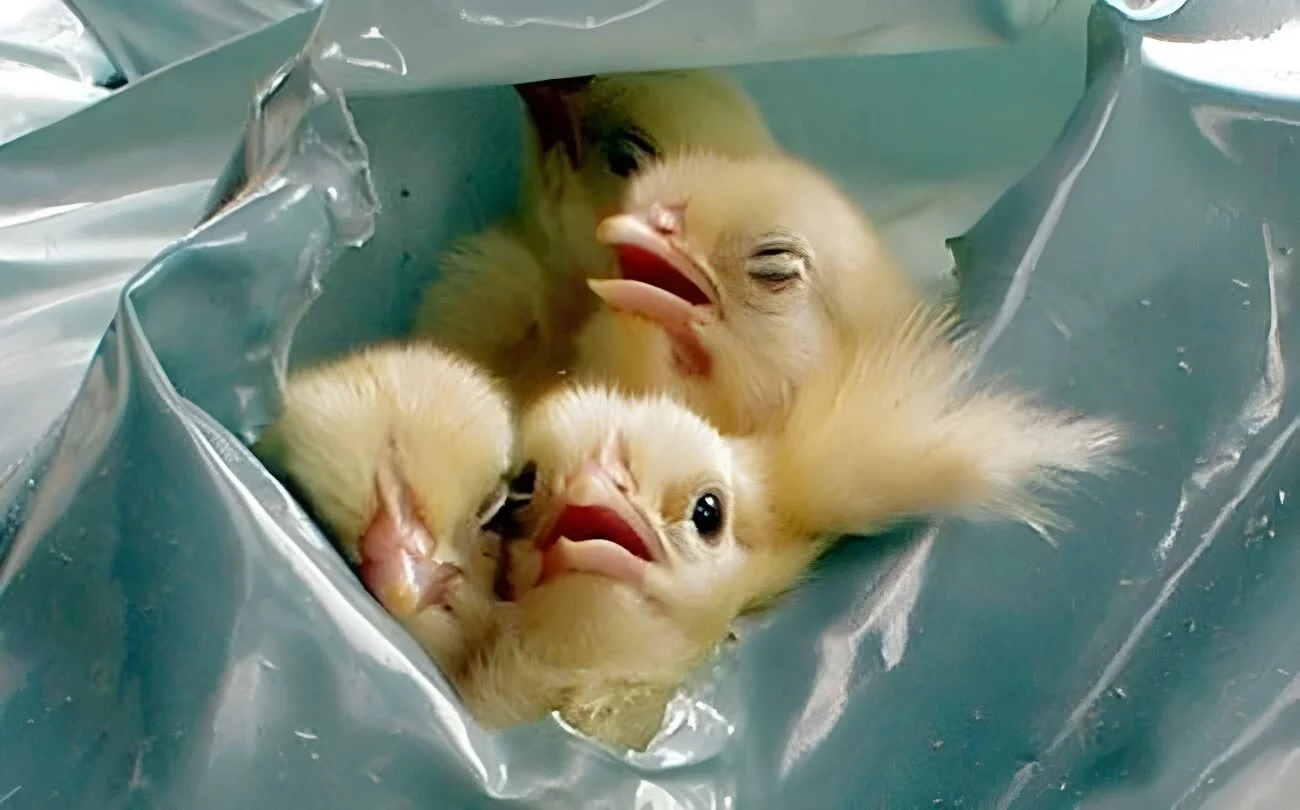
And what about fish? 🐟
Fish farming imposes extremely high densities on animals, and is a source of stress, illnesses, wounds... Moreover, it further increases the number of victims of fishing, since farmed fish are often fed with small wild fish. At either small or industrial scale, “sustainable” or in fish farms, the fish industry always imposes a long and painful agony on animals.
To find out more 🔍
- The best speech you'll ever hear — College conference
- Norm — a short film
- Earthlings — documentary about how we relate to other animals on Earth
- Dairy is scary — The dairy industry explained in 5 minutes
Based on original content by L214